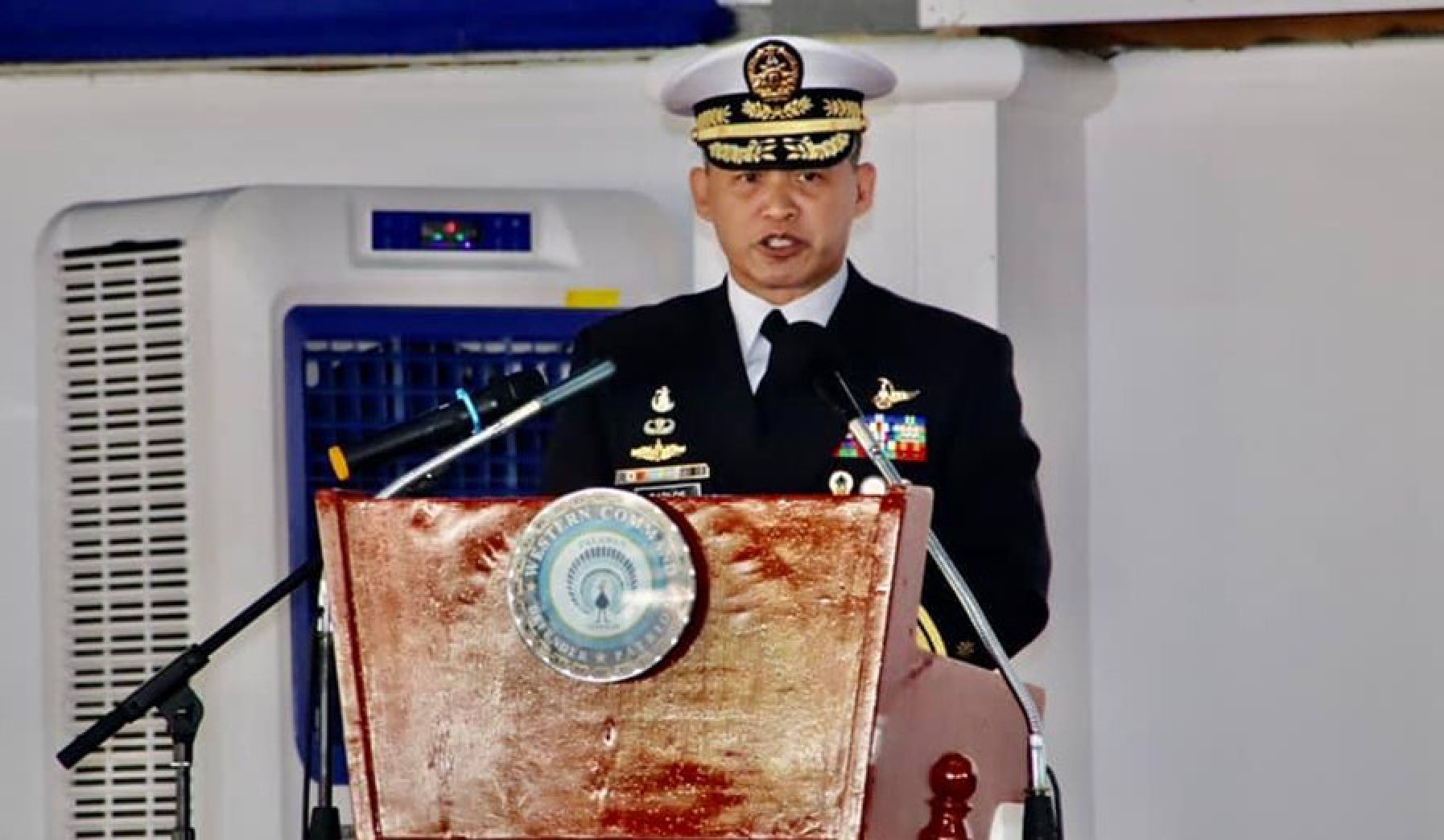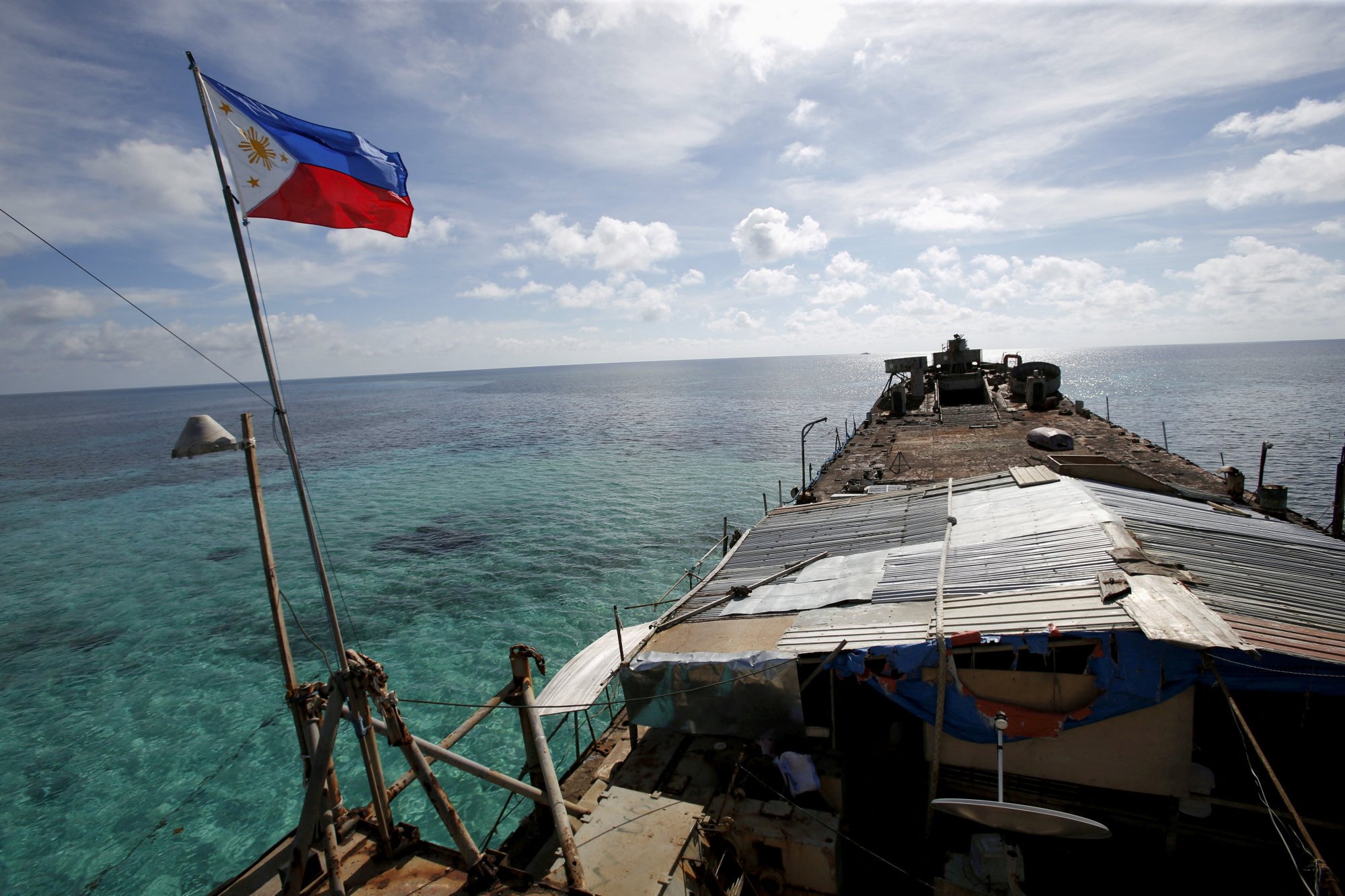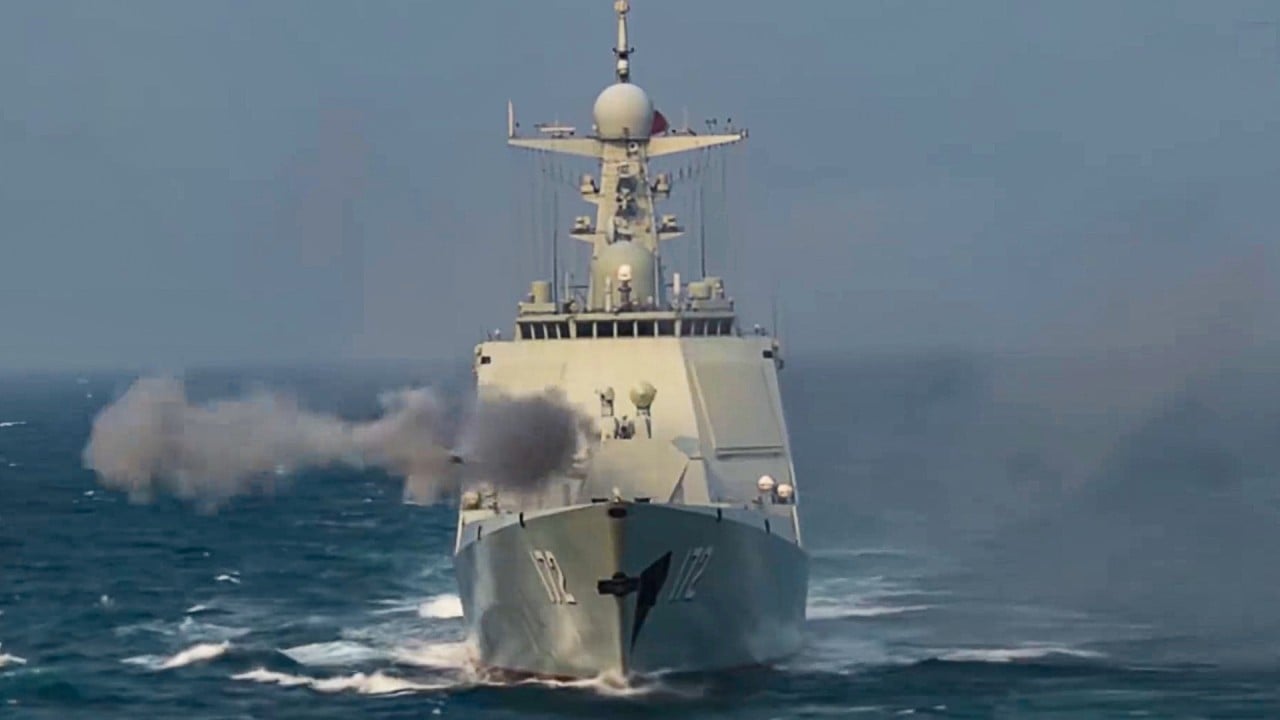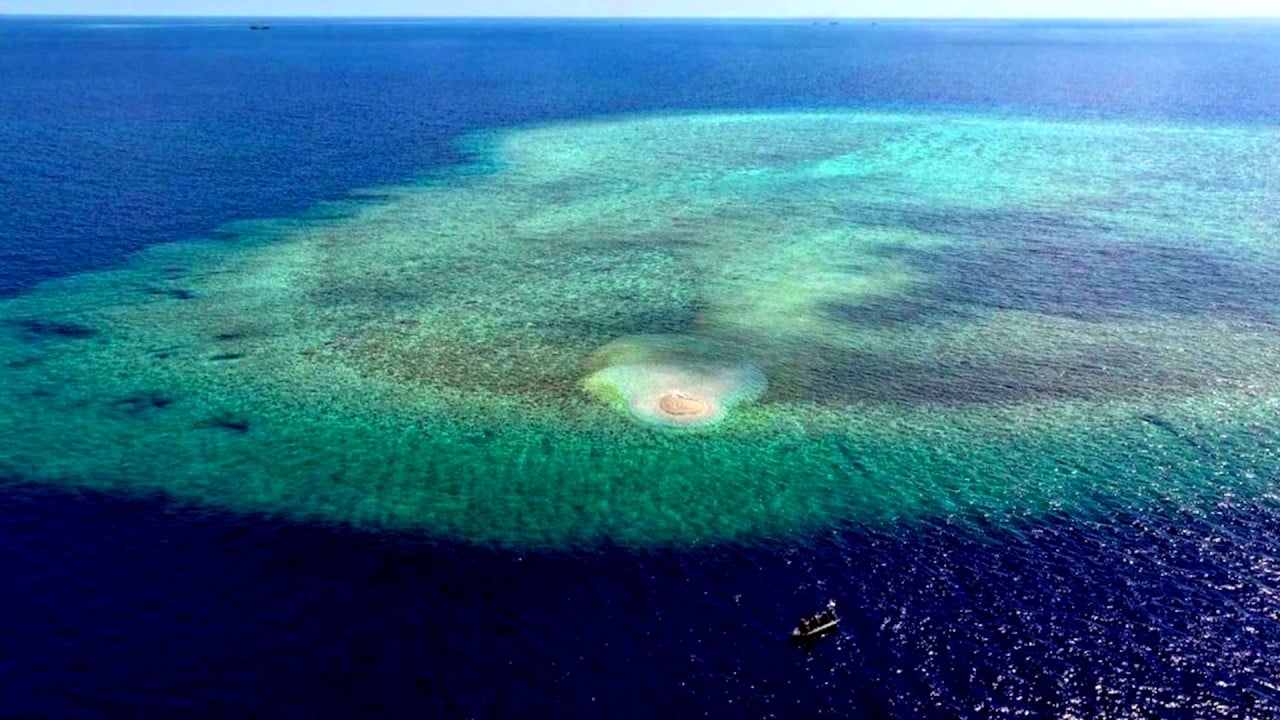
“We are looking into it because, the fact of the matter is, there have been mentions of a tape that confirms that there was this agreement,” Marcos Jnr said on the sidelines of an event in Makati City on Saturday.
“It’s very hard to come to a conclusion until we know the thing actually exists. If it does exist, it is in the possession of the Chinese embassy and the Chinese government,” he added.
Marcos Jnr said his office would not draw any conclusions until he had personally heard the audio from the supposed wiretapped conversation.
The key point of the alleged deal is a “1+1” format for both sides, meaning Manila would only deploy one Philippine coastguard vessel and a resupply boat to the shoal, while China would only launch one coastguard ship and a fishing boat in response. Manila would be required to notify Beijing two days in advance of any resupply missions, which could only deliver food and water to the troops manning the BRP Sierra Madre.
Over the weekend, Rear Admiral Alfonso Torres Jnr officially replaced Carlos as the chief of the military’s Western Command, which oversees most Philippine-claimed territories in the South China Sea. Carlos took a leave of absence days after the controversy arose.
On Sunday, Senator Francis Tolentino said an invitation was sent to Chinese ambassador to the Philippines Huang Xilian, the consul general of China, and Carlos to attend the Senate investigation.
“Diplomats have immunity with respect to the normal operations of their embassy; however, there is no immunity for breaking the host country’s laws,” Tolentino said.
Asked why the president decided to call for an investigation instead of allowing Carlos to defend himself in a press conference, Chester Cabalza, a fellow at the US State Department’s Study of the US Institutes on National Security, said an investigation needed to go through rigid due process, especially in the military.
“The Armed Forces of the Philippines is one of the most trusted organisations in the country, and a transparent investigation must be pursued to vindicate or punish a senior military officer. The Philippine president is the commander-in-chief of the military, and he should obey the process,” Cabalza told This Week in Asia.

As to why Manila could not simply demand the embassy hand over the alleged recording, Cabalza said the current climate of psychological warfare and widespread misinformation between the two countries meant straightforward diplomatic solutions were no longer viable.
“This prolongs the agony of confusion, as two versions will continue to influence public opinion in China and the Philippines. The world needs to be critical of the two sides of the story to unveil the hidden truth behind the fiasco,” he said.
Cabalza also explained that Carlos had to be replaced to lessen suspicions, especially given how crucial intelligence and counter-intelligence endeavours were to the integrity of the military.
“The whole thing implies that the Beijing-Manila security relationship suffers from a heavy burden of distrust and disinformation. This drives the opportunity and challenge to sit down together and build another layer of trust and confidence in bilateral relations,” Cabalza said.
Espena from the International Development and Security Cooperation said China was strategically exploiting the Philippines’ tendency to rely on personalities rather than institutions to negotiate agreements, taking advantage of the country’s perceived corruption issues.
Hindering the free flow of information necessary for strategic decision-making benefits some players, Espena said. In this case, he said it is forcing Marcos Jnr to navigate bureaucratic challenges, potentially providing opportunities for Beijing to exploit.
“On the Philippine side, while it is not entirely the Marcos administration’s fault that some officials are airing fears and alternatives that contradict the government’s foreign security policy, it resorts to unilateral investigations because cooperating with Beijing to find the truth is difficult due to diverging national interests,” Espena said.
“The way forward is to protect the bureaucracy from these sorts of attacks by ensuring open communication and not allowing groupthink to take over. The Marcos administration should not allow ideology and personality to obscure this pursuit.”



